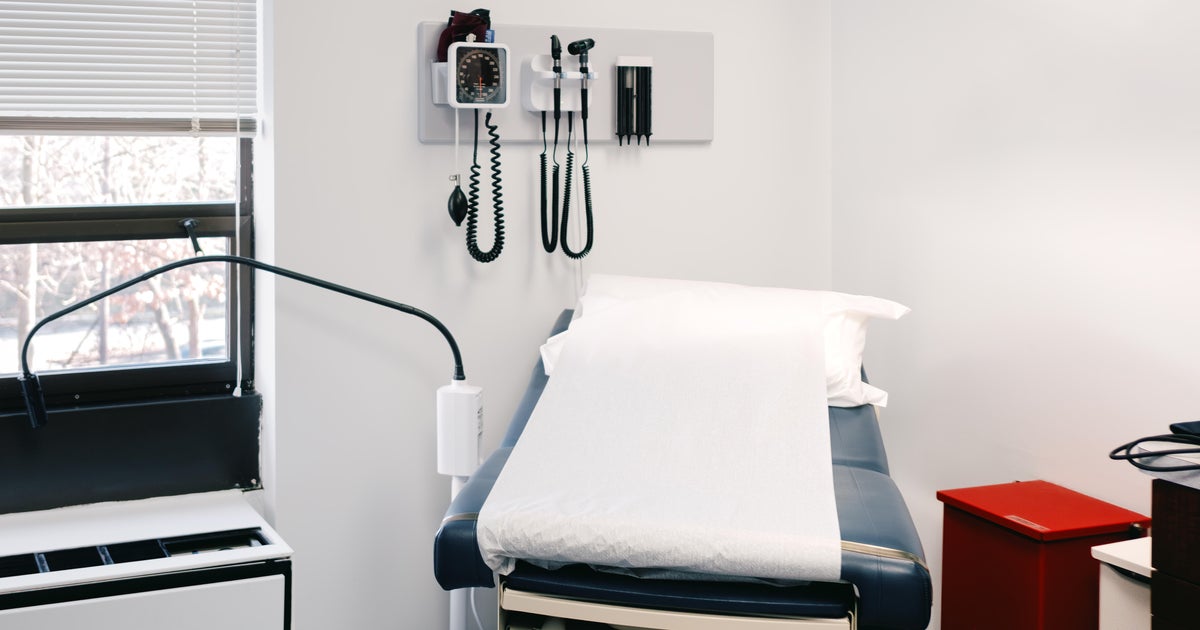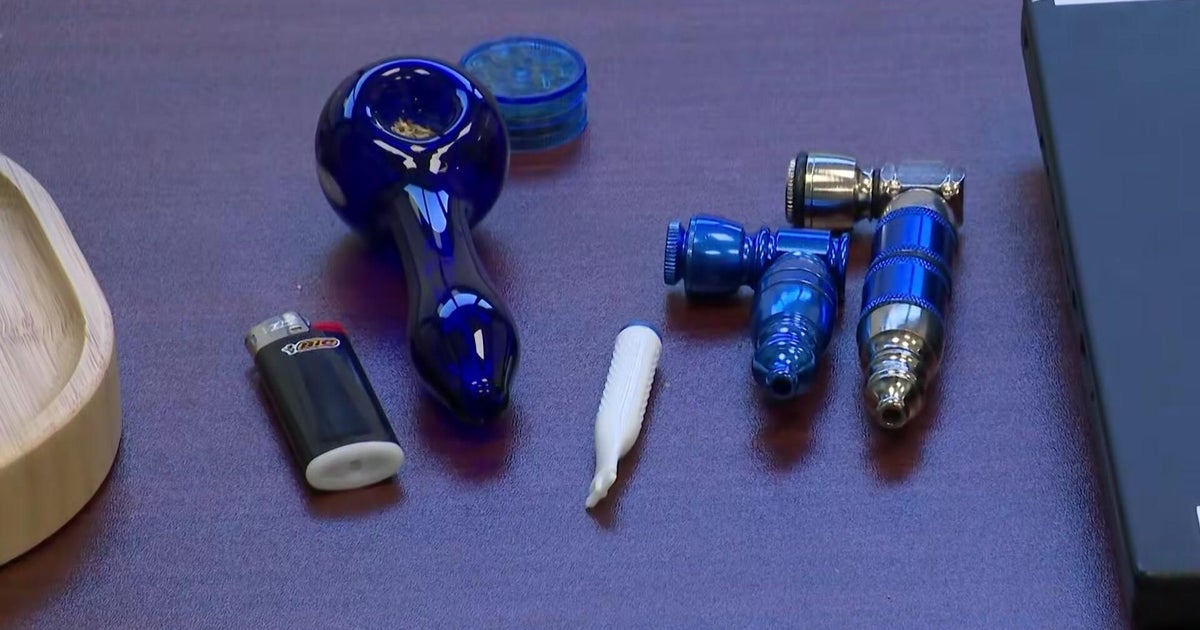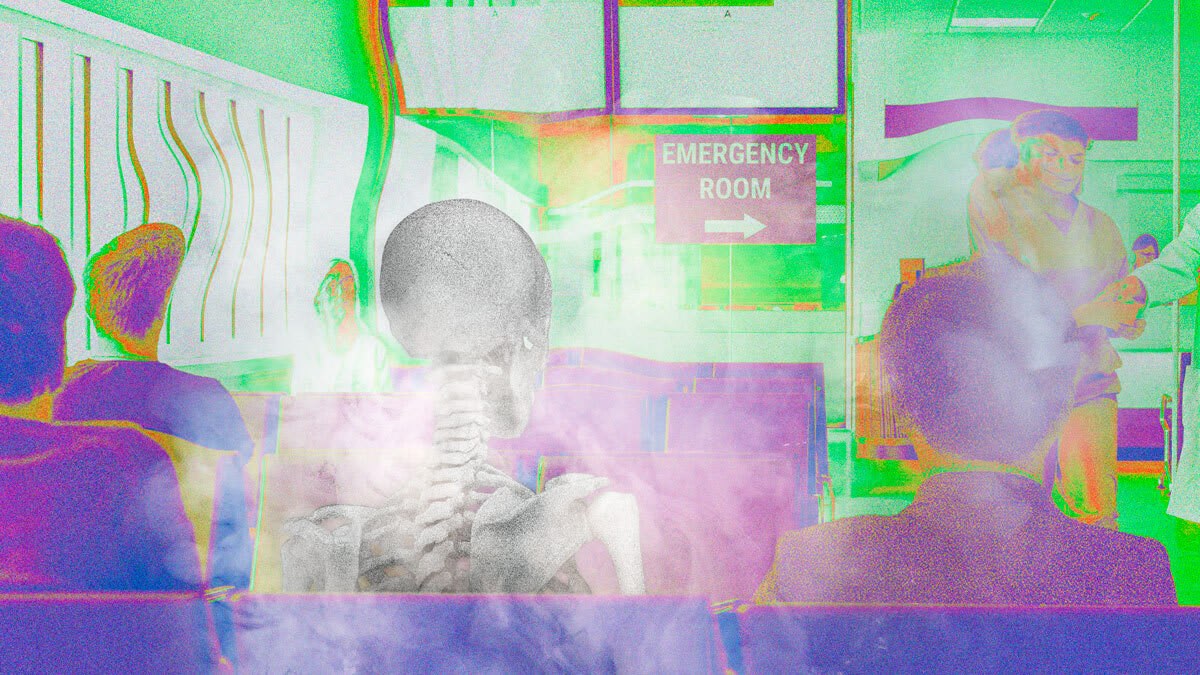Overfilled ICUs put non-COVID patients' health at risk: "These are people suffering unnecessarily"
Nathaniel Osborn spent more than six hours in a Florida hospital's emergency room with his 12-year-old son Seth this past July. The two waited together as Seth's appendix ruptured, and there were no beds available. Despite Seth being in excruciating pain, doctors told Seth's family the hospital emergency room was overwhelmed with COVID patients.
"My wife was taken from the emergency room waiting room back into the observation rooms there, and she asked one of the nurses, 'What's going on? Why did we have to wait so long?' And the nurse rolled her eyes and said something to the effect of, 'Well, what do you think? We're slammed with COVID,'" Osborn told CBS News' Manuel Bojorquez.
Seth was eventually seen and recovered, but his situation is not uncommon. Across the nation, hospitals' emergency rooms are overfilled with mostly unvaccinated COVID-19 patients—putting everyone who needs healthcare in danger.
In Florida, at least 50 hospitals are at 100% occupancy in their ICUs. Hospitals in the state, including Nicklaus Children's Hospital in Miami, have had to be selective when it comes to which cases they take.
"Sometimes we have to limit all the other cases we have to do, especially elective cases," said Dr. Marcos Mestre, Chief Medical Officer at Nicklaus Children's Hospital.
Mestre said the hospital hasn't turned patients away yet, but he is concerned about the coming months.
"For things like influenza, RSV, all respiratory viruses tend to peak at that time. So if we get that in addition to COVID, I'm really concerned about our capacity here, not only in space but also with staffing," Mestre said.
The problem and the suffering extends far beyond Florida. In Alabama, ICU's are above 100% capacity across the entire state. With limited space available inside, some hospitals are forced to treat patients wherever they can.
"We have ventilating patients in the ER because they don't have the space upstairs. We have ventilating patients in hallways," said Dr. Don Williamson, Alabama Hospital Association President and CEO.
73-year-old Ray Demonia suffered a cardiac episode earlier this month. His family called 43 hospitals in three states for help. He was transferred to a hospital in Mississippi—200 miles from his home and died there on September 1.
In Idaho, hospital ICUs are so close to capacity that they are forced to send patients across their state border to Washington, which is dealing with its own COVID crisis.
"We know that people with debilitating conditions have to wait. These are people suffering unnecessarily because our hospitals are overwhelmed with COVID patients," said Taya Briley, Executive Vice President, Washington State Hospital Association.
While the number of COVID patients in Florida hospitals has started to come down from record-breaking highs, Mestre is concerned that hospitals could be overwhelmed soon from a combination of a COVID and flu surge in the fall if people refrain from both vaccines.



